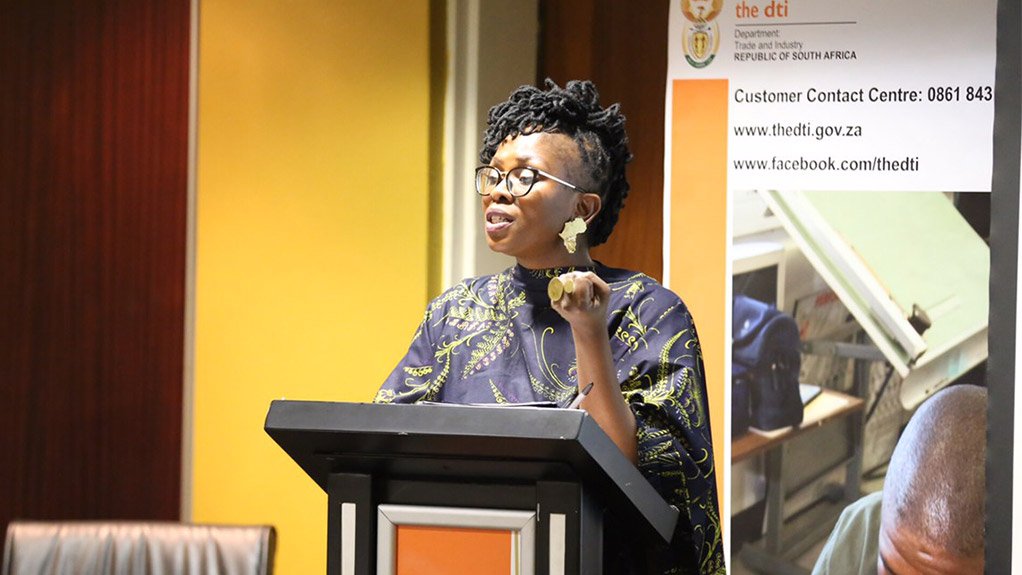Export councils are key drivers for South Africa’s economic transformation and they should be supported and prioritised, according to Department of Trade and Industry (DTI) deputy director- general Lerato Mataboge.
This is in line with the South African Capital Equipment Export Council’s (SACEEC’s) agenda to promote capital equipment sector companies to grow their businesses through exporting. In conjunction with the DTI, SACEEC identifies, motivates and facilitates assistance, both financial and supportive, to its member companies wishing to access export markets through national pavilions, individual exhibitions and outward selling missions and inward buying missions.
Mataboge was addressing the two-day Export Council Quarterly Meeting, which ran from August 20 to 21 at the DTI campus in Sunnyside, Pretoria.
“As government, we need to look at our efficiencies in so far as how we are structured, and the support that is provided to export councils and vice versa. We also need to determine if we are really working cohesively and supporting each other in accessing new markets, determining the strategy for which markets are a priority for the country, and determining which companies and exporters are in need of what kind of support. This is the role that we as government and export councils jointly play because that is where transformation is going to happen,” she said.
According to Mataboge, there is a need to find a way for export councils to coordinate better among themselves by looking at the clustering approach to make sure that they drive the economic strategy of the country. She mentioned that the clusters would enable government and export councils to have an impact on the continent, in the partner economies of the Brazil, Russia, India, Russia and South Africa trade bloc economies, and the broader global market.
“Export councils, together with the DTI, need to find a niche to have a say in the Presidential R100-billion investment drive because investments and exports are intertwined. We also have to relook at the Integrated National Export Strategy in light of the 6% a year export target that the National Development Plan has set for us.”
She further pointed out that there was a need to reflect on and see what contribution could be made to enable the DTI and export councils to reach set targets and also look at the institutional arrangements that are in existence to see if they are assisting in driving the export agenda, she said.
Mataboge added that there was a need to discuss the recommendations of the Integrated National Export Strategy, and consider having a National Export Act that will pull together all the elements that speak to exports and the role of the export councils.
More than growing exports, export councils are an integral part of government’s plan to diversify product offerings, broaden markets and develop exporters through the mobilisation of black-, women- and youth-owned enterprises, as well as emerging exporters.
Edited by: Zandile Mavuso
Creamer Media Senior Deputy Editor: Features
EMAIL THIS ARTICLE SAVE THIS ARTICLE
ARTICLE ENQUIRY
To subscribe email subscriptions@creamermedia.co.za or click here
To advertise email advertising@creamermedia.co.za or click here













